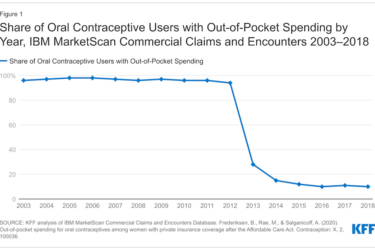
One result of the ongoing health care reform debate – and the coverage of it – is a renewed look at Medicaid by both journalists and the public.
The joint federal-state government health insurance program is often thought of as simply serving the poor, but Republicans’ efforts to roll back Obamacare’s expansion of the coverage also opened up efforts to educate readers about other beneficiaries, according to some analysts.
Even as Republicans in the Senate appeared to run out of options this week, the debate over the program is likely to continue.
“One of the positives about this is at least there’s been a greater education around Medicaid,” MSNBC political analyst Harold Ford Jr. recently said.
In addition to covering low-income Americans, the program also supports nursing home care for some seniors, pregnant women and many children. It’s also a lifeline for many disabled people, as topic core leader Joanne Kenen recently wrote. Altogether, some 70 million people in the United States get their coverage through Medicaid, this Reuters graphic shows.
Additionally, U.S. military veterans also depend on the program, particularly in areas where there are not Veterans Affairs health facilities, National Public Radio and Kaiser Health News reported.
About a half million veterans are enrolled in both Medicaid and the VA health system, KHN’s Stephanie O’Neill said in the piece, citing Families USA data that showed one in 10 U.S. veterans is enrolled in Medicaid.
“Medicaid has had this stigma of being, in the eyes of a lot of voters, as something that poor people take advantage of. We’ve learned that rural hospitals depend heavily on Medicaid dollars, and nursing homes – middle class Americans whose parents are in nursing homes – rely heavily on Medicaid dollars,” Ford, a former Democratic legislator, told MSNBC’s “Morning Joe” program.
Medicaid was established alongside the Medicare program for the elderly in 1965. The 2010 Affordable Care Act (ACA), or Obamacare, called for its expansion, although the Supreme Court later ruled it optional. Eventually, 32 states widened coverage.
Republicans, who control the House and the Senate as well as the White House, proposed drastic changes to the program, exposing the split among senators from U.S. states that chose to adopt Medicaid expansion under the ACA and those that did not. While some moderates expressed concerns over cutting the program, more conservative Republicans backed reining it in.
“What you see now is a great divide between states like mine, who have the expansion, and other states, who are non-expansion states,” Republican Senator Shelley Moore Capito of West Virginia told CNN in a June 28 interview.
Capito, whose state is heavily impacted by the nation’s opioid crisis, said many in her state depend on Medicaid to access drug addiction treatment and other therapies and that she did not want residents to abruptly lose coverage even if they were transitioned to some kind of private insurance.
“If there is a transition, it has to be seamless … the Senate bill was too much of a cliff,” Capito told CNN. “We’re working to try to close that gap.” (Capito joined fellow moderate Republican senators Susan Collins of Maine and Lisa Murkowski of Alaska in announcing their opposition to a repeal-only effort on July 18.)
U.S. President Donald Trump earlier posted his own take of the bill’s impact on Medicaid that some health care journalists said did not tell the whole story.
“Trump also tweeted a graph … that showed Medicaid spending increasing under the Senate bill. That’s in line with the White House argument that the $772 billion in savings are just reductions in Medicaid’s growth, not cuts. But the graph doesn’t acknowledge that there are any savings at all, which of course is the whole point of the proposed changes,” Axios’s David Nather wrote in his Vitals newsletter. Vox’s Alvin Chang and Javier Zarracina made a similar point, releasing their own “fixed version” of the graph.
Meanwhile, as Republican legislators continue to figure out what, if any, path lies ahead on health care, Medicaid’s likely to stay front-and-center.
Further reading:
- Kaiser Family Foundation: Medicaid
- Politico: How the GOP Turned Against Medicaid and Medicaid shows its political clout
- NPR: Veterans Concerned About Medicaid Cuts In GOP Plan
- The Hill: Trump: Democrats ‘purposely misstated’ Medicaid cuts
- Reuters: States’ Medicaid spending to increase under Senate bill: report








